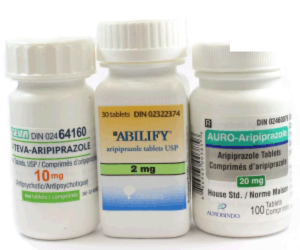Prozac Tablets
$50.00 – $150.00
Prozac Tablets
Prozac, also known by its generic name fluoxetine, is a medication primarily used to treat depression, obsessive-compulsive disorder (OCD), bulimia nervosa (an eating disorder), panic disorder, and premenstrual dysphoric disorder (PMDD).
Prozac Tablets
Prozac, also known by its generic name fluoxetine, is a medication primarily used to treat depression, obsessive-compulsive disorder (OCD), bulimia nervosa (an eating disorder), panic disorder, and premenstrual dysphoric disorder (PMDD). Here’s a breakdown of its description, uses, side effects, and precautions:
Description:
- Chemical Composition: Fluoxetine hydrochloride is the active ingredient in Prozac. It belongs to a class of medications called selective serotonin reuptake inhibitors (SSRIs), which work by increasing the levels of serotonin, a neurotransmitter in the brain associated with mood regulation.
- Forms: This drug is available in oral tablet form, as well as in delayed-release capsules and oral solution.
- Dosage: This dosage can vary depending on the condition being treated, the patient’s age, and other factors. It typically ranges from 20mg to 80mg per day for adults, with lower doses often used in elderly patients and adolescents.
Uses:
- Depression: It is commonly prescribed to treat major depressive disorder (MDD), a condition characterized by persistent feelings of sadness, hopelessness, and loss of interest or pleasure in activities.
- Obsessive-Compulsive Disorder (OCD): It’s used to treat OCD, a mental health disorder characterized by intrusive thoughts (obsessions) and repetitive behaviors (compulsions) that interfere with daily life.
- Bulimia Nervosa: It is approved for the treatment of bulimia nervosa, an eating disorder characterized by binge eating followed by behaviors to prevent weight gain, such as self-induced vomiting or excessive exercise.
- Panic Disorder: It’s used to treat panic disorder, a type of anxiety disorder characterized by recurrent panic attacks, which are sudden episodes of intense fear or discomfort.
- Premenstrual Dysphoric Disorder (PMDD): Prozac is FDA-approved for the treatment of PMDD, a severe form of premenstrual syndrome (PMS) characterized by mood swings, irritability, and other symptoms that occur in the days before menstruation.
Side Effects:
- Nausea: Nausea is a common side effect, especially when starting treatment with this drug.
- Headache: Some individuals may experience headaches while taking it.
- Insomnia or Drowsiness: It can affect sleep patterns, leading to either difficulty falling asleep (insomnia) or drowsiness.
- Sexual Dysfunction: It can cause changes in sexual desire or performance, including decreased libido, difficulty achieving orgasm, or erectile dysfunction.
- Weight Changes: Some people may experience weight loss or weight gain while taking this drug.
- Anxiety or Nervousness: In some cases, it may worsen anxiety symptoms, especially at the beginning of treatment.
- Gastrointestinal Effects: Other gastrointestinal side effects may include diarrhea, constipation, or dry mouth.
- Serotonin Syndrome: Although rare, Prozac can increase serotonin levels to a dangerous extent, leading to a condition known as serotonin syndrome, which requires immediate medical attention. Symptoms include agitation, hallucinations, fever, sweating, shivering, fast heart rate, muscle stiffness, twitching, loss of coordination, nausea, vomiting, and diarrhea.
Precautions:
- Suicidal Thoughts: Like other antidepressants, Prozac may increase the risk of suicidal thoughts or behaviors, especially in children, adolescents, and young adults. Close monitoring by a healthcare provider is essential, especially when starting treatment or changing the dosage.
- Pregnancy and Breastfeeding: The use of Prozac during pregnancy or breastfeeding should be carefully considered, weighing the potential risks and benefits. It’s essential to discuss this with your doctor.
- Medical Conditions: Inform your healthcare provider about any medical conditions you have, especially epilepsy, bipolar disorder, or a history of bleeding disorders or seizures.
- Drug Interactions: Prozac can interact with other medications, including monoamine oxidase inhibitors (MAOIs), other SSRIs, certain migraine medications, and blood thinners. Inform your doctor about all medications you’re taking to avoid potential interactions.
- Alcohol: Avoid or limit alcohol consumption while taking Prozac, as it can increase the risk of side effects.
- Discontinuation: Do not stop taking Prozac abruptly, as it can cause withdrawal symptoms. Your doctor will usually taper the dosage gradually when discontinuing treatment.
Always take Prozac as prescribed by your doctor and follow their instructions carefully. If you experience any concerning side effects or have any questions about its use, consult your healthcare provider.

| Amount | 100 pills, 30 pills, 60 pills |
|---|
Reviews
There are no reviews yet.
Related products
Pills
Pills
Pills
Pills
Pills
Pills
Pills












Be the first to review “Prozac Tablets”